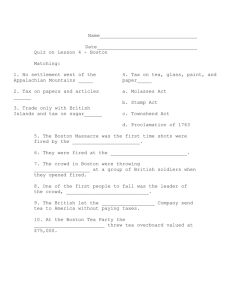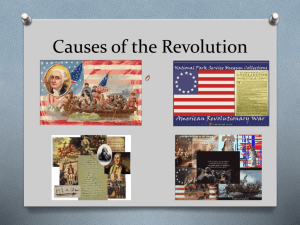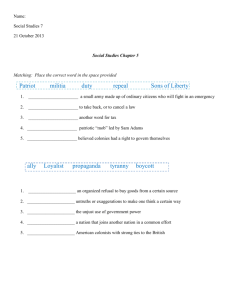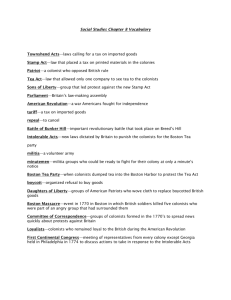Boston Tea Party/Tea Act
advertisement
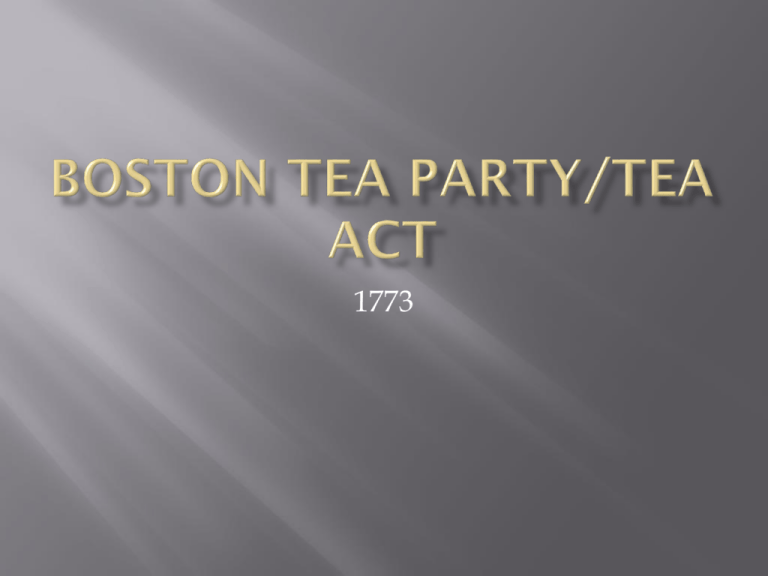
1773 1763 Charles Townshend proposes new taxes. Imposes taxes on a number of imported goods: tea, glass, paper and paint. colonists organized popular and effective boycotts of the taxed goods. 1770, parliament repeals the tax on all goods EXPECPT on tea. As a result of the Tea tax-colonist begin to drink smuggled Dutch Tea rather then British East India Tea (Cheaper). East India Company begins to lose $$ and product Britain passes Tea Act in 1763 Allowed the East India Co. to ship Tea directly to the Colonies without stopping in England first Lowered the price of tea… …But still taxed Colonists reacted with boycotts and direct resistance (Boston Tea Party) 1. 2. 3. 4. A series of four acts established by the British government designed to restore order in Boston The Boston Port Act, which closed the port of Boston until damages from the Boston Tea Party were paid. The Massachusetts Government Act, which restricted Massachusetts; democratic town meetings and turned the governor's council into an appointed body The Administration of Justice Act, which made British officials immune to criminal prosecution in Massachusetts. The Quartering Act, which required colonists to house and quarter British troops on demand, including in their private homes as a last resort First Continental Congress in September 1774, met in Philadelphia and began orchestrating a united resistance to British rule in America.
